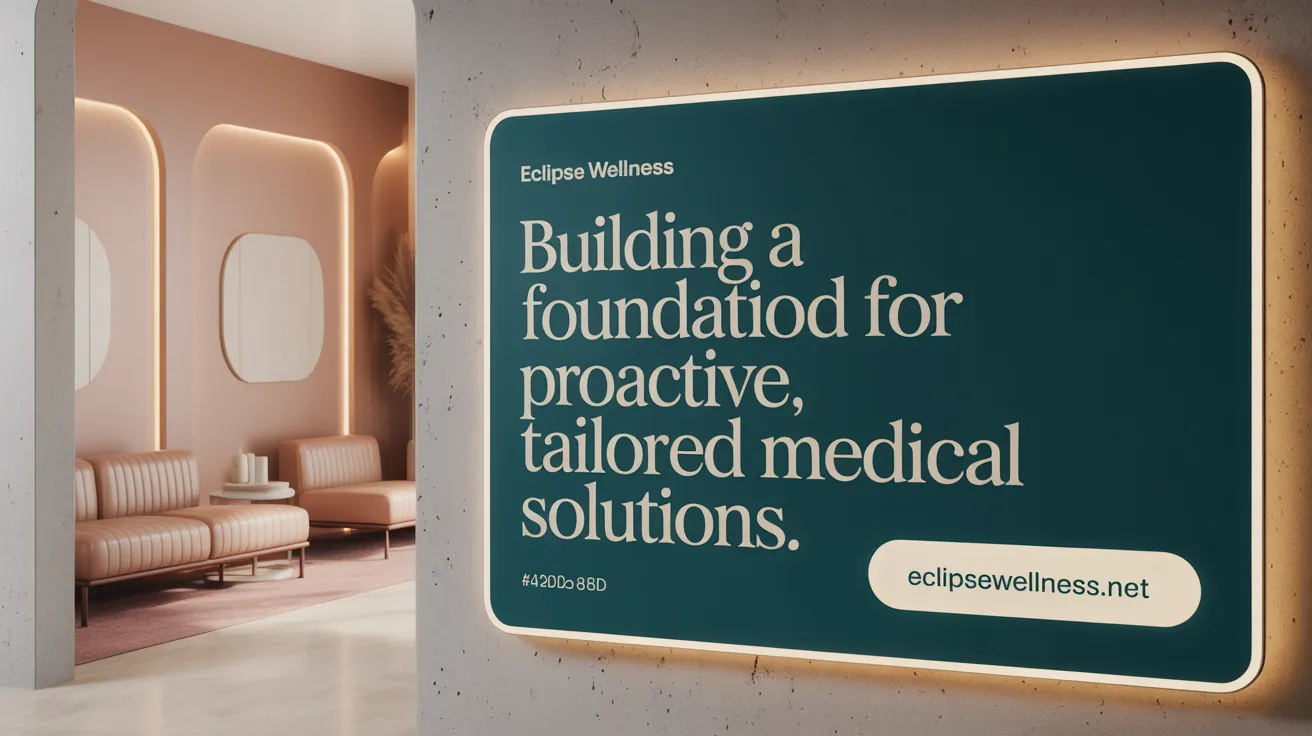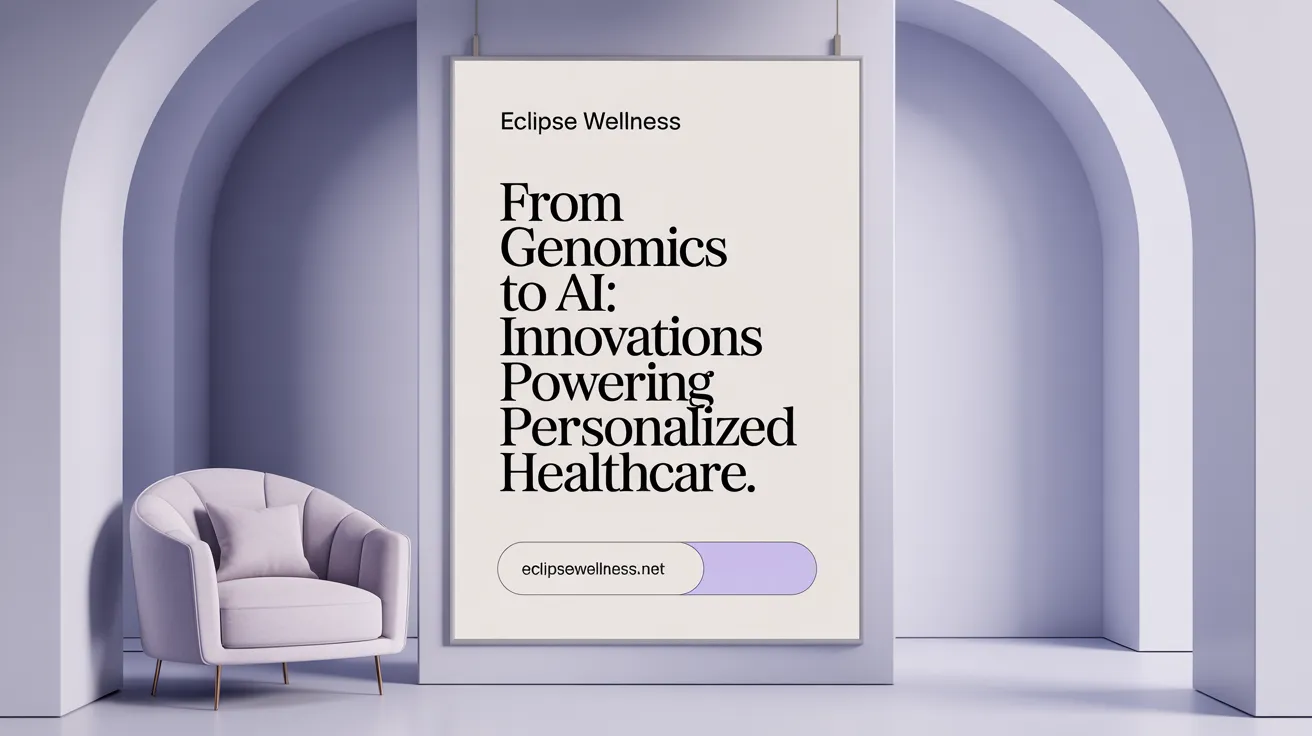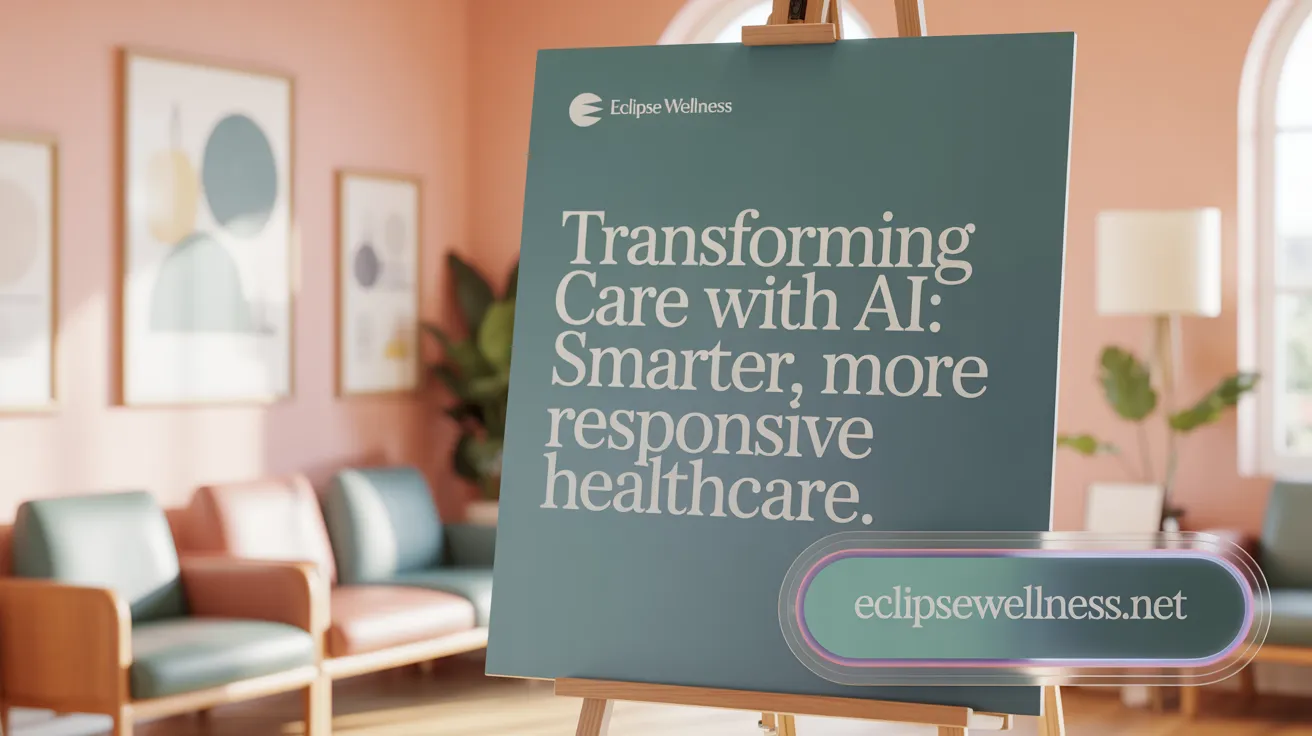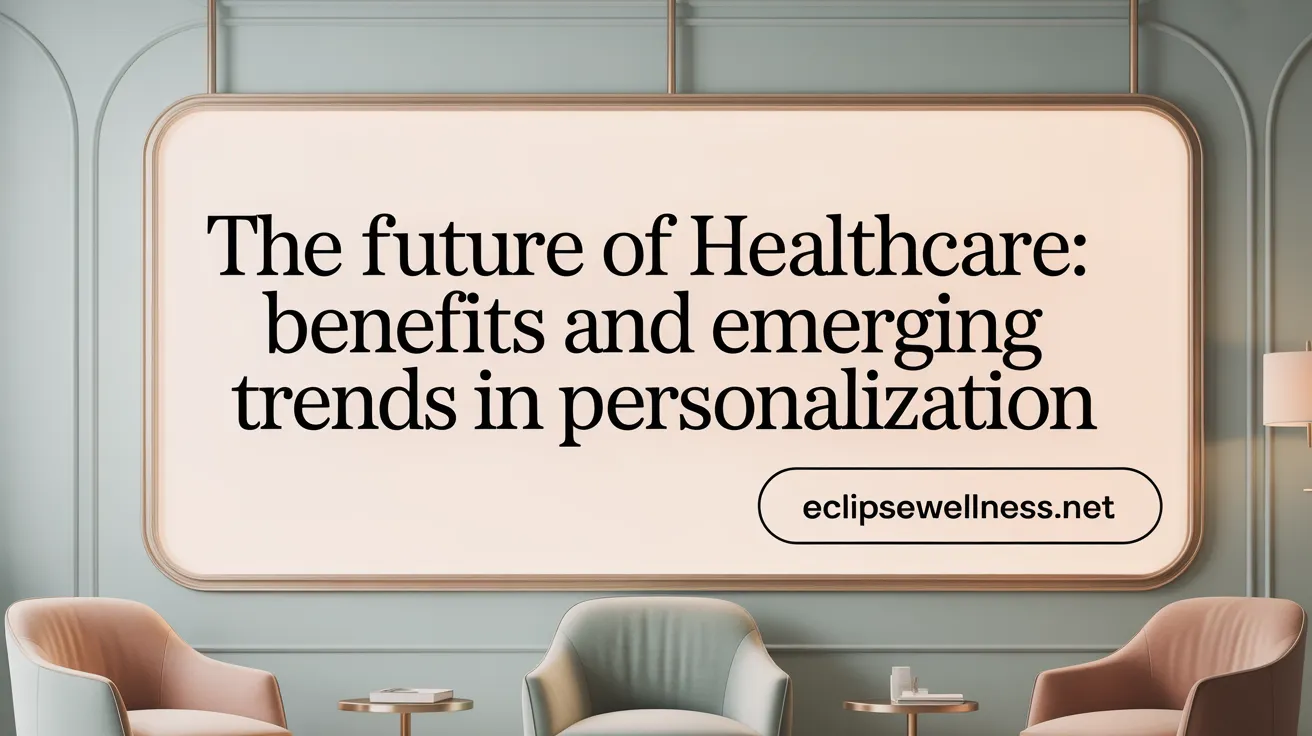Understanding Personalized Healthcare in Today’s Medical Landscape
Personalized healthcare is rapidly reshaping the medical field by tailoring treatments and care plans to each individual's unique genetic, lifestyle, and environmental factors. This approach is not just a technical evolution but represents a fundamental shift towards patient-centered care, emphasizing precision, proactive management, and partnership between patients and providers. As technology, data analytics, and artificial intelligence converge, they enable unprecedented levels of customization in patient care, promising improved outcomes, higher satisfaction, and a transformed healthcare experience.
Foundations of Personalized Healthcare: Core Principles and Patient-Centered Integration

What is personalized healthcare and what are its core principles?
Personalized healthcare, also called personalized medicine, is an innovative approach that adapts medical treatment and prevention strategies based on an individual’s unique genetic makeup, lifestyle, and medical history. Its main goal is to provide more precise, effective care tailored to each person's specific needs.
The core ideas of personalized healthcare include individualization—customizing therapies according to genetic variations—and accuracy—using advanced technologies such as genome sequencing to identify specific molecular targets. It emphasizes informed shared decision-making, where clinicians and patients work together to choose the best treatment options.
To deliver truly personalized care, diverse data sources like genetic information, clinical findings, and lifestyle factors are combined. This holistic view helps optimize health outcomes and address social influences on health, making care more equitable.
In essence, personalized healthcare strives to shift away from a reactive, one-size-fits-all model towards proactive, wellness-focused strategies that aim to improve overall health and reduce disease burden.
Technological Innovations Driving the Personalized Healthcare Revolution

What technological advancements and innovations are driving personalized healthcare?
Recent developments in technology are transforming the landscape of personalized healthcare (PHC). Genome sequencing and bioinformatics have made it possible to analyze an individual’s genetic profile in detail, enabling more accurate diagnoses and targeted therapies.
AI and machine learning play a crucial role by analyzing vast amounts of health data to predict risks, suggest treatments, and enhance diagnostic accuracy. These tools help create tailored treatment plans, improving outcomes and reducing side effects.
Wearable devices and Internet of Things (IoT) technology provide continuous, real-time health monitoring. These gadgets track vital signs, activity levels, and other health metrics, allowing for early interventions and proactive care.
Secure data sharing is facilitated by blockchain technology, which ensures privacy and integrity when exchanging sensitive health information across different healthcare systems. This promotes better coordination and reduces redundancies.
Moreover, integration of AI with big data analytics supports advanced risk assessments, offering predictive insights based on genetic, lifestyle, and environmental information. Emerging innovations such as virtual health assistants, 3D printing of medical devices, and implantable neurostimulators are adding layers of personalization, safety, and efficiency.
Overall, these technological strides are making healthcare more precise, accessible, and patient-centered, paving the way for a future where treatments are uniquely tailored to each individual’s needs.
| Technology | Application | Benefits | Additional Details |
|---|---|---|---|
| Genomic sequencing | Genetic analysis | Precise diagnosis & targeted therapy | Enables personalized medicine based on individual genetic makeup |
| AI & machine learning | Data analysis & predictions | Enhanced diagnostics & customized treatments | Supports predictive modeling & risk assessment |
| Wearables & IoT devices | Continuous health monitoring | Early detection & proactive care | Devices track vital signs and activity data |
| Blockchain | Data security & sharing | Privacy protection & interoperability | Ensures decentralized, tamper-proof health records |
| Emerging innovations | Virtual assistants, 3D printing, implantables | Improved customization & safety | Expanding the toolkit for personalized interventions |
Search Query: Technological advancements in personalized healthcare including AI and genomics.
AI and Digital Tools Enhancing Personalized and Patient-Centered Care

How are AI and digital health tools impacting personalized and patient-centered care?
AI and digital health technologies are transforming the way healthcare providers deliver personalized and patient-focused services. By integrating information from various sources—such as genetic data, medical histories, lifestyle habits, and real-time physiological metrics—these tools enable more accurate diagnoses and tailored treatment strategies.
For example, AI algorithms analyze medical images, genetic profiles, and electronic health records to identify specific health risks and predict disease outcomes. This leads to precise interventions, particularly in complex fields like oncology, mental health, and chronic disease management.
Digital health devices like wearables and remote monitoring tools allow continuous data collection. Patients can track their health status daily, share data with providers, and receive timely feedback or interventions. This real-time engagement empowers patients and helps clinicians craft more responsive care plans.
Beyond diagnosis and monitoring, AI supports clinician workflows by automating administrative tasks like scheduling and documentation. This streamlines operations, reduces errors, and frees healthcare professionals to focus more on patient interaction.
AI also enhances teamwork across healthcare teams by providing decision support systems that synthesize data and suggest optimal treatment paths. Improved collaboration leads to consistent, coordinated care, minimizing gaps and redundancies.
However, challenges such as data privacy, algorithmic bias, and the need for workforce training must be addressed. Ensuring ethical AI use and safeguarding patient information are essential to maximize these technologies’ positive impact.
By advancing diagnostic accuracy, promoting proactive management, and facilitating collaborative care, AI and digital tools are pivotal to building a healthcare system centered on individual needs and experiences.
Benefits, Implications, and Evolving Healthcare Trends in Personalized Care

What are the benefits and implications of personalized healthcare for patient care?
Personalized healthcare significantly improves patient care by customizing diagnosis, prevention, and treatment based on an individual’s genetic, environmental, and lifestyle factors. This tailored approach results in better clinical outcomes and higher patient satisfaction.
It encourages active participation from patients, fostering shared decision-making and empowerment. Patients become more engaged in managing their health, leading to healthier behaviors and proactive healthcare management.
The precision of interventions reduces side effects and supports early detection, which can prevent more serious health issues. It also has the potential to lower overall healthcare costs by avoiding unnecessary treatments and enabling targeted therapies.
Technological advancements like data analytics, AI, and digital monitoring tools enable continuous patient monitoring and personalized outreach. These innovations help manage chronic conditions more effectively and improve long-term health management.
Ultimately, personalized healthcare marks a shift from traditional reactive models to proactive, patient-centered strategies. This evolution promotes better health, enhances quality of life, and supports sustainable healthcare systems.
What are the current trends and reforms evolving in healthcare to enhance patient outcomes through personalization?
Modern healthcare is increasingly adopting advanced technologies such as genomics, big data, and AI to provide highly individualized care. This technological shift supports the transition from conventional, system-centered care to models that prioritize the patient’s unique needs.
Digital health tools, including telehealth, remote monitoring, and virtual assistants, empower patients to take an active role in their health management. These tools facilitate continuous monitoring, timely intervention, and improved communication between patients and providers.
Regulatory reforms, such as those inspired by the Affordable Care Act, aim to promote innovation and extend personalized solutions to broader populations, including underserved groups.
Emerging technologies, like IoT sensors, blockchain for secure data sharing, virtual reality, and 3D printing, are transforming treatment customization and real-time health monitoring. They support more predictive, preventive, and personalized healthcare delivery.
These combined efforts are designed to enhance patient outcomes, improve access, and make healthcare more efficient and responsive to individual needs.
| Aspect | Description | Impact |
|---|---|---|
| Technologies | Genomics, AI, big data, digital tools | Enables tailored treatments and proactive management |
| Reforms | Policy changes, expanded access, regulatory updates | Promotes innovation and inclusion |
| Innovations | IoT, blockchain, VR, 3D printing | Supports real-time data, customization, and transfer |
| Overall Focus | Patient participation, personalized therapies | Leads to better outcomes and system efficiency |
By embracing these advancements, healthcare continues its evolution towards a more responsive, individualized, and effective system—benefiting patients and providers alike.
Challenges and Future Prospects for Personalized Healthcare Implementation
What challenges and future prospects exist in implementing personalized healthcare?
Implementing personalized healthcare (PHC) is a transformative goal in modern medicine, but it faces several significant hurdles. Data privacy and security concerns are at the forefront, as sensitive genetic and health data require stringent protections to prevent misuse. Additionally, the complexity of managing vast and diverse data sets necessitates advanced digital infrastructure and sophisticated analytics tools.
Cost remains a major barrier. Targeted therapies and advanced diagnostic technologies often come with high price tags, limiting widespread access. Regulatory frameworks must adapt to new types of treatments and data-driven approaches, which can slow approval processes and create uncertainty. Healthcare providers also need extensive training to interpret genetic and data analytics insights and to implement personalized treatment plans effectively.
To overcome these challenges, fostering international cooperation and harmonizing regulations will be essential. Innovative clinical trial models, such as N-of-1 trials and adaptive designs, are emerging to demonstrate the value and efficacy of personalized treatments in smaller, more flexible study settings.
Looking to the future, technological advancements will play a crucial role. AI, genomics, and proteomics are set to revolutionize data analysis and patient care. Miniaturized, minimally invasive data collection methods will make ongoing monitoring more feasible and less burdensome.
With supportive policies and investments, these innovations promise a future where healthcare becomes more precise, effective, and equitable. As these elements come together, personalized medicine could lead to improved patient outcomes, optimized resource use, and a paradigm shift from one-size-fits-all approaches to truly individualized treatments.
Impact on Medical Research and the Shift Towards Participatory Medicine
How is personalized healthcare influencing medical research and treatment paradigms?
Personalized healthcare is reshaping the landscape of medical research and treatment. It emphasizes the use of genetic, epigenomic, and clinical data to design therapies tailored to an individual’s unique biological makeup. This approach moves away from the traditional "one size fits all" model, allowing for more precise and effective interventions.
Advances in biomarkers, liquid biopsies, and genomic profiling enable early disease detection, promoting preventive care and early interventions. These innovations support the development of targeted treatments such as immunotherapies and specific drug regimens, reducing reliance on trial-and-error prescribing and minimizing side effects.
Incorporating lifestyle, psychological, and environmental factors makes care more holistic and patient-centered. While challenges like high costs, data privacy, and regulatory issues exist, ongoing investments in technology and research are fostering a more efficient, proactive system. Ultimately, personalized healthcare leads to better outcomes, higher patient engagement, and a continuous evolution toward a more effective medical paradigm.
How is the cultural shift towards participatory medicine and patient engagement affecting personalized healthcare?
This cultural shift significantly influences personalized healthcare by making patients active partners in their health journey. Digital tools, such as health apps, wearable devices, and online portals, empower patients to access their health information, monitor their conditions, and share data with providers.
Enhanced access to tailored health data fosters better understanding and adherence to treatments. Patients become more knowledgeable and involved, which boosts their confidence and motivation, leading to improved health outcomes.
This participatory approach aligns well with the principles of precision medicine, as it allows for treatment plans that reflect individual preferences, genetics, and lifestyles. It also encourages clinicians to incorporate patient insights into decision-making, making care more responsive and personalized.
As a result, healthcare becomes more transparent, collaborative, and effective, with empowered patients contributing to better-quality research, informed decision-making, and increased satisfaction. This cultural evolution supports a sustainable, patient-centered healthcare system that continuously adapts to individual needs.
The Future is Personal: Embracing a Patient-Centered Healthcare Paradigm
Personalized healthcare marks a transformative chapter in medicine, intertwining advanced technology with a renewed focus on the patient as a central partner in care. By harnessing genetic insights, artificial intelligence, and comprehensive data integration, personalized healthcare redefines medical treatment from a generic approach to one deeply attuned to each individual's unique profile. As the healthcare landscape evolves, overcoming implementation challenges through collaboration, education, and ethical innovation will be crucial. Moreover, the cultural shift towards participatory medicine ensures that patient voices shape this future, improving outcomes and satisfaction. Ultimately, personalized healthcare promises not only improved clinical effectiveness but also a more compassionate, responsive, and sustainable healthcare system tailored to the needs of every patient.
References
- Healthcare Becomes More Personalized: A New Era in Patient ...
- AI In Healthcare: A New Era Of Personalized Patient Care
- Personalised Medicine—Implementation to the Healthcare ...
- Personalized healthcare in the era of value-based healthcare
- How Patient-Centered Research is Empowering the Next ...
- How Health Care Is Evolving to Improve the Patient ...
- A New Health Care Paradigm: The Power of Digital ...
- Personalized medicine could transform healthcare - PMC
- Personalised Medicine—Implementation to the Healthcare ...
- Making medicine personal: Moving away from a one-size- ...
